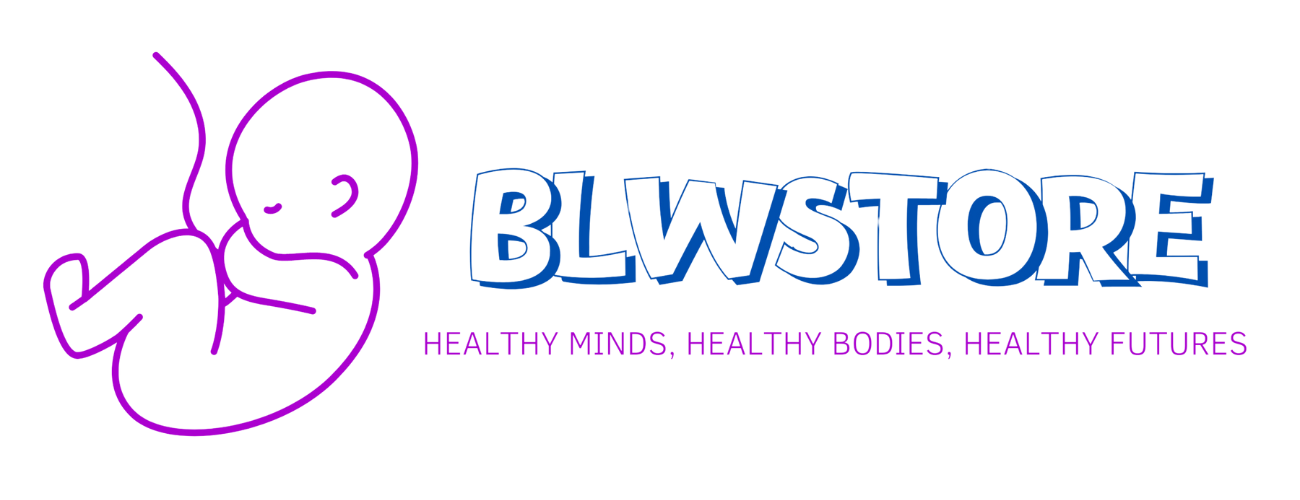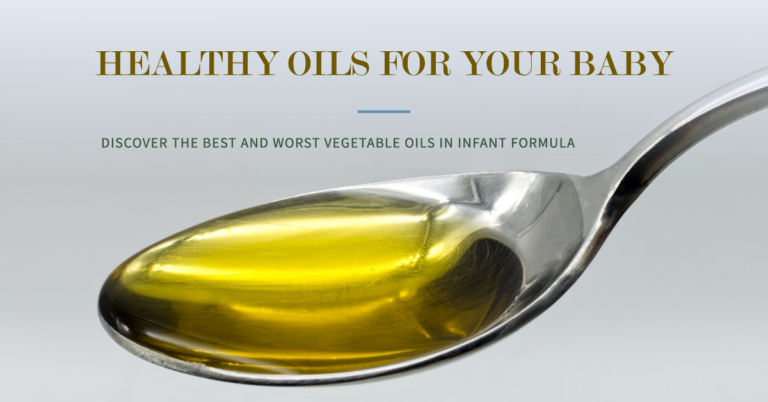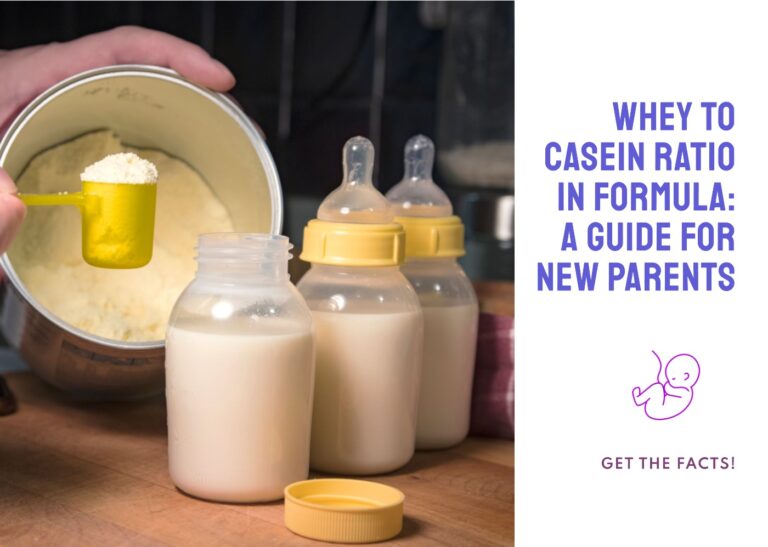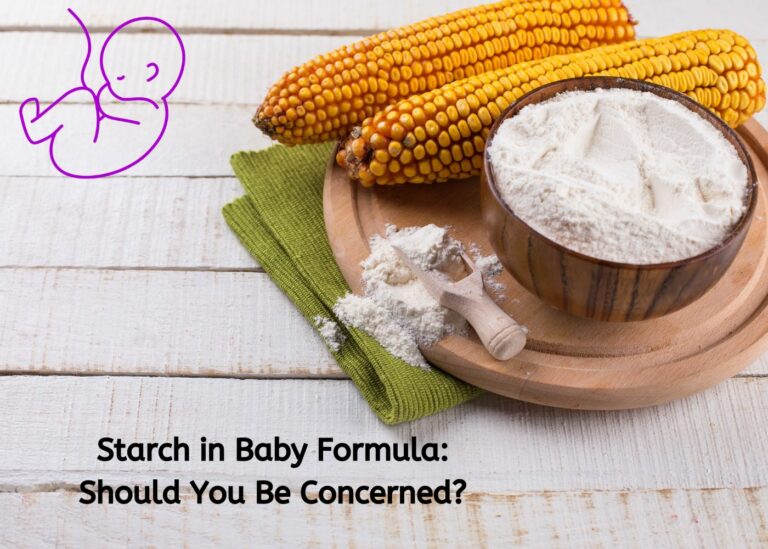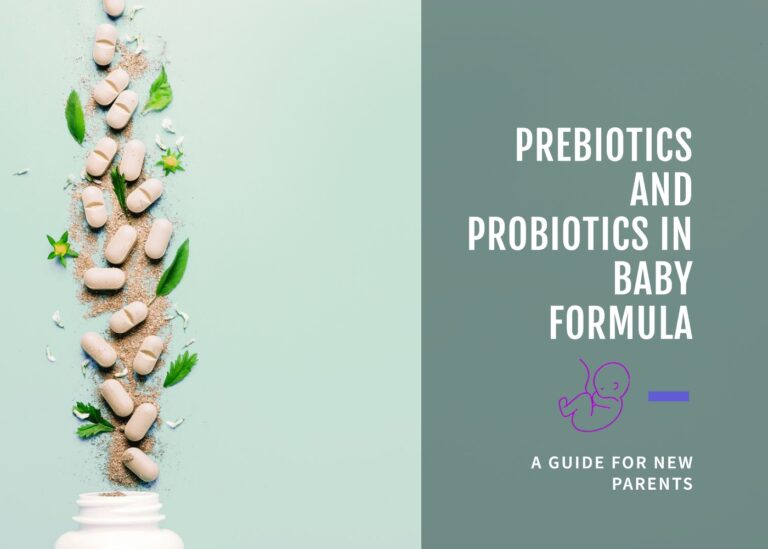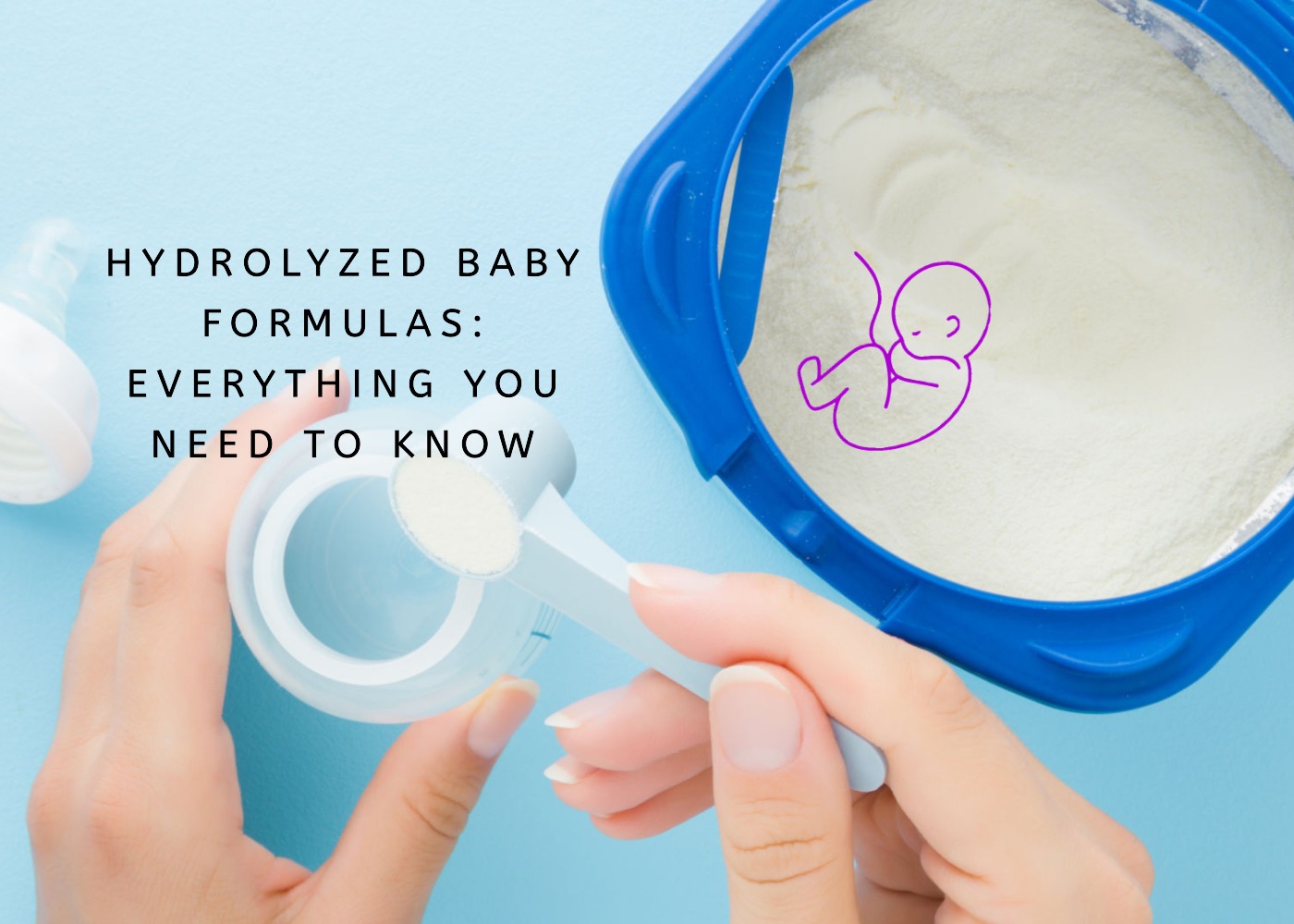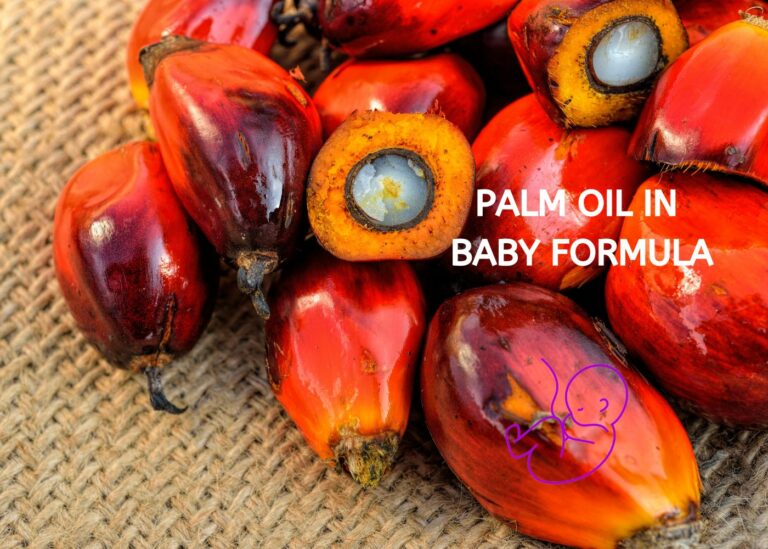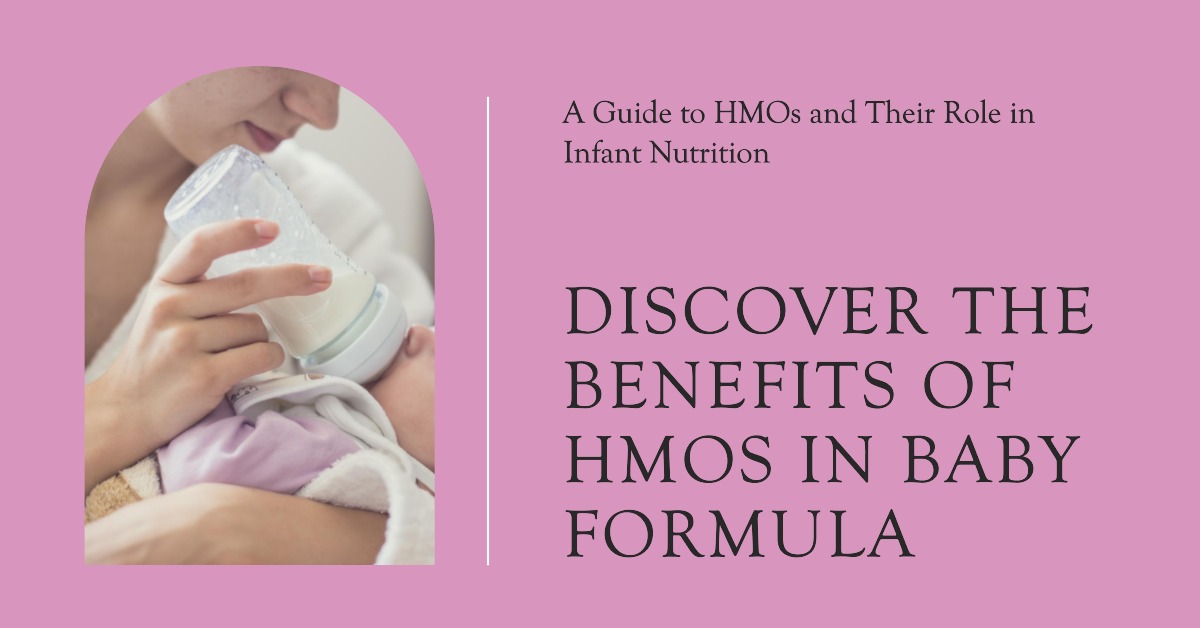
HMOs, or Human Milk Oligosaccharides, are an ingredient that more and more infant formulas are adding to their recipe, but are they beneficial?
Is it important for parents to choose a formula that contains HMOs, or are HMOs not a crucial ingredient in baby formula?
That’s the question we will solve in this article.
Let’s get after it!
Our Take: Do You Need a Formula with HMOs?
HMOs have been scientifically proven to be very beneficial for infants.
When choosing the best formula for your baby, among all the ingredients that infant formulas contain, HMOs have to be taken into account, but you should not base your decision on that alone.
The first thing is always to find several formulas that suit your baby’s needs, then sift through them and choose the best in terms of ingredients. If it also has HMOs, all the better.
What Are HMOs?
Human Milk Oligosaccharides, or HMOs for short, are complex sugars in human breast milk. They are the third most abundant solid component after lactose and lipids. These aren’t just sugars; they act as prebiotics and play a significant role in your baby’s health.
HMOs are made up of five basic building blocks: glucose, galactose, N-ethylglucosamine, fucose, and sialic acid. They come in different types, but the main ones include:
- Neutral
- Neutral N-containing
- Acidic
Why Are HMOs Important?
HMOs are crucial because they do a lot more than provide energy. They act as defenders against illness and help to develop your baby’s gut bacteria, which is essential for their overall health. The benefits of HMOs are vast, but here are a few key points:
- Infection Defense: They can stop harmful germs from sticking to the gut and causing sickness.
- Gut Health: HMOs are like fertilizer for good bacteria, helping them grow and keep the bad ones in check.
- Immune Booster: These sugars can also teach your baby’s immune system to know what to fight against, helping prevent infections.
- Brainy Babies: Evidence suggests they might be good for brain development, same as MFGM (Milk Fat Globule Membrane)
Benefits of HMOs in Baby Formula
Breast milk is the gold standard for infant nutrition, but not all moms can or choose to breastfeed. That’s where HMO-supplemented formulas come in. They aim to mimic breast milk’s benefits, including:
- Healthy Microbiome: Formulas with HMOs support the growth of good gut bacteria.
- Protection: They may help reduce the risk of viruses and infections.
- Immunity: There’s potential for these formulas to help develop a strong immune system.
- Happy Tummies: HMOs can play a role in preventing tummy troubles.
Are There Any Risks?
It’s important to talk about any potential downsides, right? So far, studies show that HMOs, particularly 2′-Fucosyllactose (2′-FL) and Lacto-N-Neotetraose (LNnT), are safe for babies. Regulatory agencies in the US and Europe have given them the thumbs up. While HMOs are a relatively new addition to formula, the research is promising, and no significant risks have been reported.
However, as with any infant feeding decision, it’s always best to chat with your pediatrician. They can give you the lowdown on whether HMO-supplemented formula is a good choice for your little one.
A Quick Recap:
- HMOs = Health Heroes: They protect against infections and help the gut.
- Formula + HMOs: A dynamic duo trying to bridge the gap between formula and breast milk.
- Safety First: HMOs in formulas are generally regarded as safe with no big risks attached.
What Infant Formulas Contain Hmos?
There are more and more formulas in the marketplace that start adding HMOs. Here are some of the most popular ones in the US:
| FORMULA | HMOs | LACTOSE | CORN SYRUP | MALTODEXTRIN | PALM OIL | SOY OIL | PREBIOTICS | MFGM | RATING |
|---|---|---|---|---|---|---|---|---|---|
| KENDAMIL ORGANIC | ✅ | ✅ | ❌ | ❌ | ❌ | ❌ | ✅ | ✅ | 10/10 |
| SIMILAC 360 TOTAL CARE | ✅ | ✅ | ❌ | ❌ | ❌ | ✅ | ✅ | ❌ | 7/10 |
| SIMILAC 360 TOTAL CARE SENSITIVE | ✅ | ❌ | ✅ | ❌ | ❌ | ✅ | ✅ | ❌ | 7/10 |
| SIMILAC PRO-TOTAL COMFORT | ✅ | ❌ | ❌ | ✅ | ❌ | ✅ | ✅ | ❌ | 7/10 |
| ENFAMIL NEUROPRO | ✅ | ✅ | ❌ | ❌ | ✅ | ✅ | ✅ | ✅ | 7/10 |
| GERBER GOOD START GENTLEPRO | ✅ | ✅ | ✅ | ✅ | ✅ | ✅ | ✅ | ❌ | 7/10 |
| SIMILAC PRO-ADVANCE | ✅ | ✅ | ❌ | ❌ | ❌ | ✅ | ✅ | ❌ | 6/10 |
| SIMILAC PRO-SENSITIVE | ✅ | ❌ | ✅ | ❌ | ❌ | ✅ | ✅ | ❌ | 6/10 |
| ENFAMIL ENSPIRE | ✅ | ✅ | ❌ | ❌ | ✅ | ✅ | ✅ | ✅ | 6/10 |
Last Words
In conclusion, HMOs are a beneficial addition to baby formulas, aiming to give formula-fed babies some of the same protective and developmental advantages breast milk offers.
But remember, the most important thing is that your baby is fed, loved, and thriving, whether with breast milk, formula, or a combination of both.
Cheers to healthy babies!
We’re Maria and Alberto, a married couple and educators who are nutrition enthusiasts. Even before we had kids, we were already crazy about nutrition.
We’d read scientific articles, watch videos from nutritionists, and spend hours listening to nutrition podcasts.
Today, we continue doing this, but in a different way, as we’ve learned to sift through the noise and trends. Nutrition, like any other field of knowledge, the more you read and learn, the more you develop a comprehensive understanding of reality, and that’s what has happened to us.
Before having our first child, we focused on learning everything we could about child nutrition, using the same techniques we had already employed, backed by our extensive knowledge in nutrition.
Our mission is to help other parents with their children’s nutrition, to help them become the best versions of themselves.
If we are what we eat and drink, which is absolutely true, let’s do it right!
